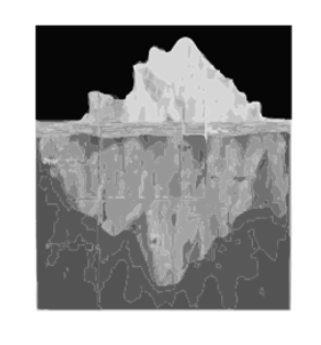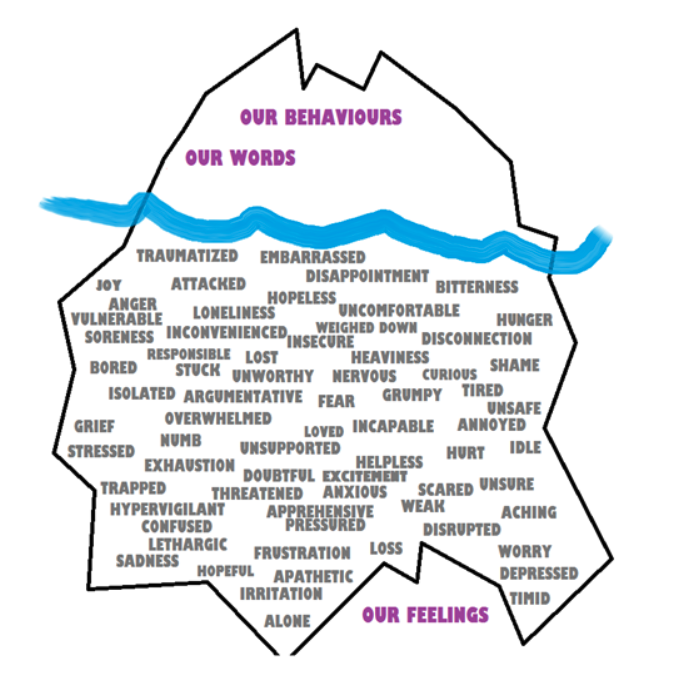
Picture this. You’re on shift. Things have been going well. Up until now, that is. Right now, you’re finding yourself face-to-face with a pretty intense outburst. Things are flying across the room and crashing. Curse words and verbal aggression hang in the air. It’s pretty easy to feel defensive in these moments.
Let’s think back to our TCI training for a moment. Recall the illustration of the iceberg. What we see—the child’s behaviour— is just the tip of the iceberg. But underneath the surface are the child’s thoughts, needs, feelings, and memories. The behaviour we see simply reflects everything going on inside, the things we cannot see.
We all have an iceberg of our own. It’s filled with many thoughts, feelings, needs, emotions. For all of us, our capacity to manage our feelings and behaviours is affected by trauma.

If we can look past the curse words and the verbal and physical aggression if we can look beyond the objects and the words that are being hurled about, if we can dive a little deeper and see what might be happening underneath the surface, then we can understand that this behaviour is not willful, but rather is part of a deeper—and often pained—experience.
Doing so frees us up to support those deeper needs. We feel less defensive and more equipped to provide support.
Our goals then (the goals of TCI) are to support and then to teach. We can provide support through prompting, managing the environment, caring gestures, hurdle help, redirection, proximity, and more!
Support comes now. Teaching later
